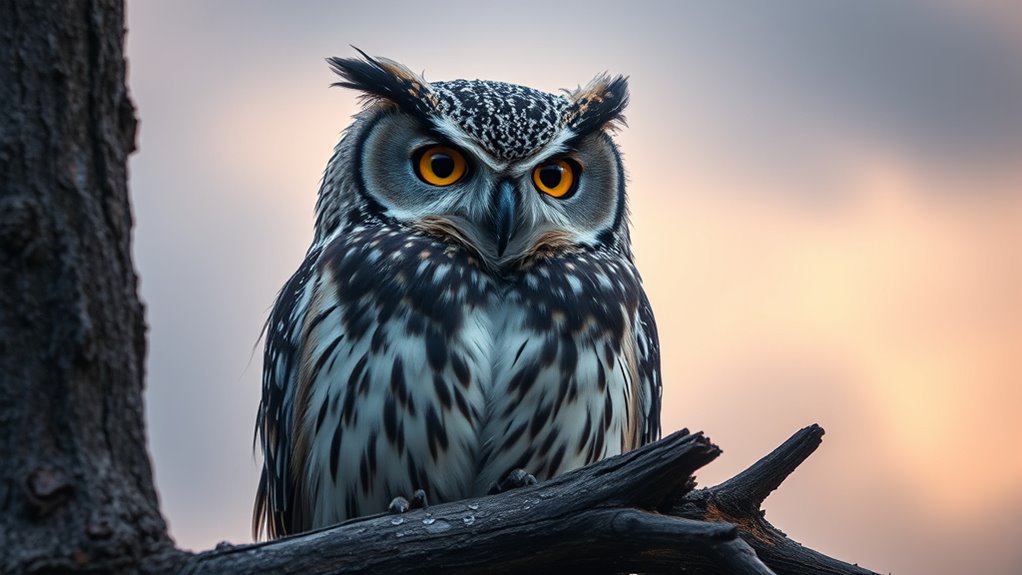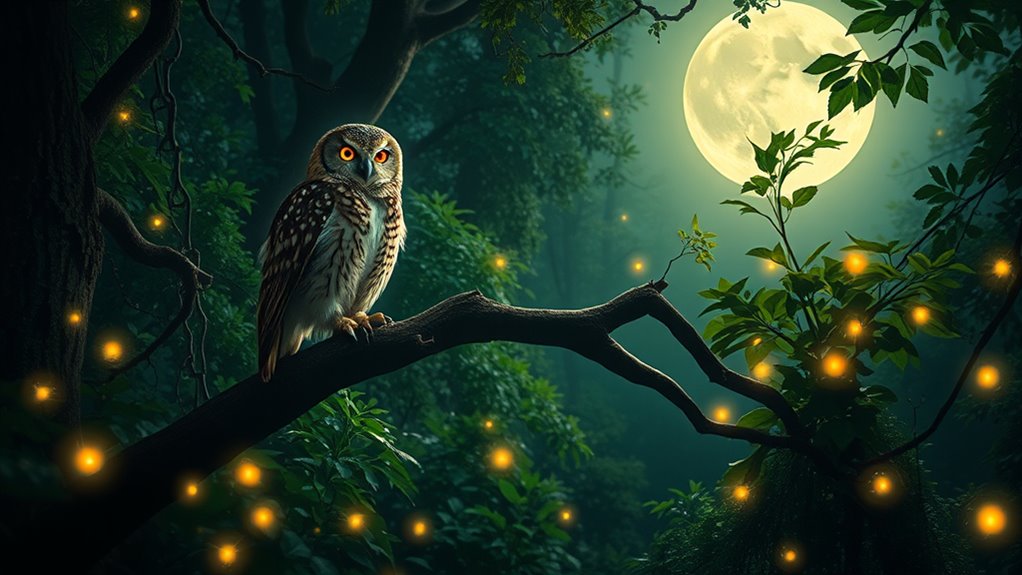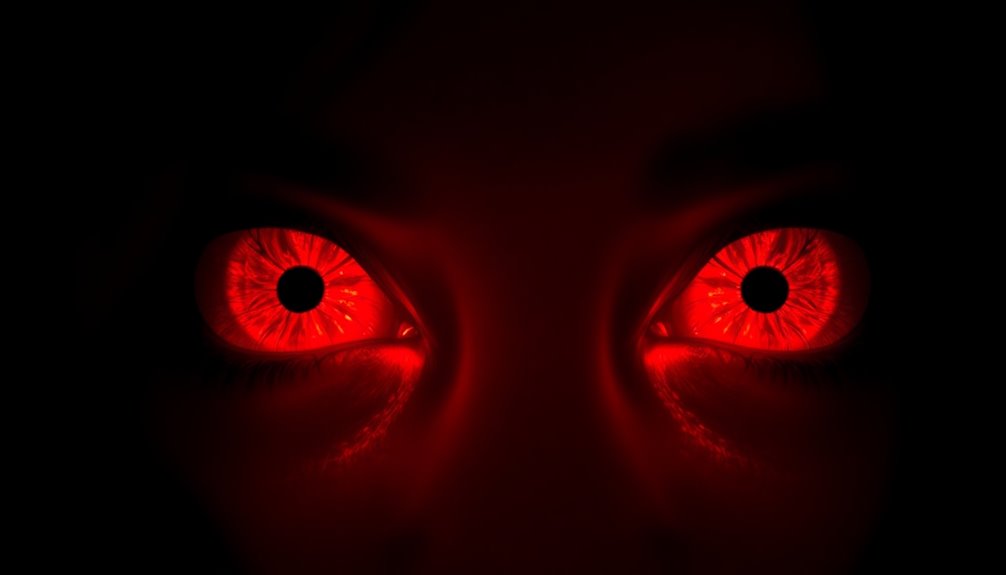When you dream of animals, it’s likely your subconscious sends symbolic messages rooted in personal meaning rather than random images. These dream symbols often reflect your emotions, strengths, fears, or archetypes like courage or vulnerability. While some interpretations point to totem messages, others are based on your current life context and feelings. Understanding these symbols can reveal insights into your inner growth and emotional state. Keep exploring, as these messages may open important truths about yourself.
Key Takeaways
- Animal dreams often serve as symbolic messages, reflecting subconscious insights rather than random brain activity.
- They can function as personal totem symbols, conveying specific qualities or guidance relevant to the dreamer.
- Context and emotional reactions during the dream help determine whether the animal represents a totem or a brain’s interpretive guess.
- Psychological interpretations suggest animals embody archetypes and traits that may inform personal growth or alertness.
- Recognizing the symbolism in animal dreams requires reflection, making interpretations more meaningful than mere guesses.

Dreams featuring animals can carry powerful messages about your subconscious mind, often reflecting your instincts, emotions, or unresolved concerns. When you see animals in your dreams, you’re tapping into a rich tapestry of symbolism in dreams that can reveal hidden truths about your inner world. These symbols aren’t random; they serve as a language that your mind uses to communicate what might be difficult to express verbally. Recognizing the symbolism in dreams helps you interpret what your subconscious is trying to tell you, whether it’s about your personal growth, relationships, or fears.
Animals in dreams reveal deep subconscious messages about emotions, instincts, and personal growth.
Understanding the psychological interpretations of animal dreams can shed light on your emotional state. For example, dreaming of a lion might symbolize strength, courage, or dominance, but it could also point to feelings of intimidation or aggression. Similarly, a gentle deer might represent innocence and vulnerability, or perhaps a desire for peace and safety. These interpretations are deeply personal—you need to contemplate how the animal made you feel in the dream and what it might symbolize based on your current life situation.
Your brain often uses animals as archetypes, representing qualities you admire or need to develop. If you dream of a wolf, it might suggest a need for independence or intuition, but it could also warn of potential danger. Psychological interpretations of these dreams help you understand the underlying messages your mind is trying to convey. They can be reflections of your instincts or unresolved conflicts that need attention.
It’s essential to pay attention to the context in which the animal appears and your reactions during the dream. For instance, a frightened animal might symbolize fears or vulnerabilities you’re avoiding in waking life, while a confident animal might encourage you to embrace your own power. Sometimes, the animal’s behavior in the dream can reveal your attitude toward certain aspects of yourself or others.
In short, interpreting animal dreams involves decoding symbolism in dreams through a lens of psychological interpretations. These dreams are not just random images but meaningful messages that can guide your self-awareness and growth. By reflecting on how the animals appear and what they represent to you, you gain insight into your subconscious mind’s messages. Whether these dreams serve as totem messages or are merely your brain’s best guess, they offer a valuable opportunity to explore your inner world and better understand yourself. Recognizing dream symbolism can help unlock deeper understanding of your emotional and psychological landscape.
Frequently Asked Questions
Can Animal Dreams Predict Future Events Accurately?
You might wonder if animal dreams can predict future events. While some believe animal symbolism in dreams offers insights, there’s no scientific proof they predict the future accurately. Dream interpretation can reveal your subconscious feelings and thoughts, but relying on animal dreams for exact predictions isn’t supported. Instead, see these dreams as a way to understand yourself better, using symbols as a guide rather than a crystal ball.
Do Different Cultures Interpret Animal Dreams Differently?
Imagine a wolf in your dream—its meaning varies across cultures. You’ll find different interpretations rooted in cultural symbolism and mythological significance, shaping how you understand animal dreams. While some see them as spiritual guides, others view them as subconscious messages. Your cultural background influences whether you see an animal as a protector, a warning, or a symbol of transformation, highlighting the rich diversity in dream interpretations worldwide.
Are Animal Dreams More Common During Certain Life Stages?
You might notice animal dreams occur more often during certain life stages, especially childhood. Childhood symbolism often features animals, representing innocence or curiosity. Hormonal influences during puberty or pregnancy can also trigger vivid animal dreams, reflecting emotional changes. As you grow, your subconscious continues to process experiences through animal symbols, making these dreams more common at specific times when your mind is especially receptive to symbolic messages or hormonal shifts.
How Do Personal Experiences Influence Animal Dream Symbolism?
While animal dream symbolism seems universal, your personal experiences shape its meaning. Personal associations color how you interpret the animals you see—perhaps a fox represents cunning, or a dove signifies peace. Cultural variations deepen this complexity, influencing symbolism based on your background. So, your unique life story and cultural context create a personalized lens, making animal dream messages both deeply individual and culturally rich.
Can Recurring Animal Dreams Indicate Unresolved Psychological Issues?
Recurring animal dreams often point to unresolved psychological issues, as they highlight persistent themes in your subconscious. In dream interpretation, animal symbolism can reveal hidden feelings or conflicts you’re avoiding. When these dreams repeat, it’s a signal to explore underlying emotions or unresolved problems. Pay attention to the specific animal and its behavior, because understanding its symbolism can help you address the root of these issues and promote emotional healing.
Conclusion
So, next time an animal appears in your dreams, see it as a whisper from your subconscious, a messenger with a secret to reveal. Whether it’s a guiding totem or your brain’s playful guess, trust your intuition to decode the message. Like a compass in the fog, these dreams can steer you toward understanding yourself better. Embrace the mystery, and let your dreams be a wild adventure into your inner world.










